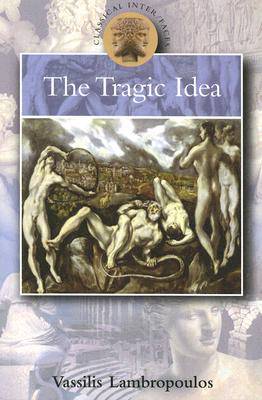
Bedankt voor het vertrouwen het afgelopen jaar! Om jou te bedanken bieden we GRATIS verzending (in België) aan op alles gedurende de hele maand januari.
- Afhalen na 1 uur in een winkel met voorraad
- In januari gratis thuislevering in België
- Ruim aanbod met 7 miljoen producten
Bedankt voor het vertrouwen het afgelopen jaar! Om jou te bedanken bieden we GRATIS verzending (in België) aan op alles gedurende de hele maand januari.
- Afhalen na 1 uur in een winkel met voorraad
- In januari gratis thuislevering in België
- Ruim aanbod met 7 miljoen producten
Zoeken
€ 62,95
+ 125 punten
Omschrijving
This radical series shows how Classical ideas and material have helped to shape the modern world. The interdisciplinary approach makes stimulating reading for all who welcome the challenge offered by new perspectives on Classical culture. Today we attribute a tragic quality to many things - works, experiences, values, events - but we forget how modern this idea is. This book traces the rise of the tragic idea from early Romanticism to late Modernism. Focusing on succinct, major statements, it maps one of the most absorbing philosophical conversations in modernity: the debate about the tragic meaning of life. This conversation has crossed geographical, linguistic, ideological and religious borders to bring thinkers together in an inquiry into the inner contradictions of liberty. While originally the tragic idea stood for the conflict of freedom and necessity, it gradually absorbed other irreconcilable dialectical collisions. It turned tragedy from a genre into a problem for ethics, aesthetics, criticism, classics, politics, anthropology and psychology, to name but a few.Scholars in these fields today will be fascinated to find human responsibility caught in the tragic web of modern dilemmas. Classicists in particular will be intrigued by the story of how, over the last two centuries, tragedy has acquired a second, parallel life away from the stage.
Specificaties
Betrokkenen
- Auteur(s):
- Uitgeverij:
Inhoud
- Aantal bladzijden:
- 160
- Taal:
- Engels
- Reeks:
Eigenschappen
- Productcode (EAN):
- 9780715635582
- Verschijningsdatum:
- 22/06/2006
- Uitvoering:
- Paperback
- Formaat:
- Trade paperback (VS)
- Afmetingen:
- 154 mm x 236 mm
- Gewicht:
- 249 g

Alleen bij Standaard Boekhandel
+ 125 punten op je klantenkaart van Standaard Boekhandel
Beoordelingen
We publiceren alleen reviews die voldoen aan de voorwaarden voor reviews. Bekijk onze voorwaarden voor reviews.









